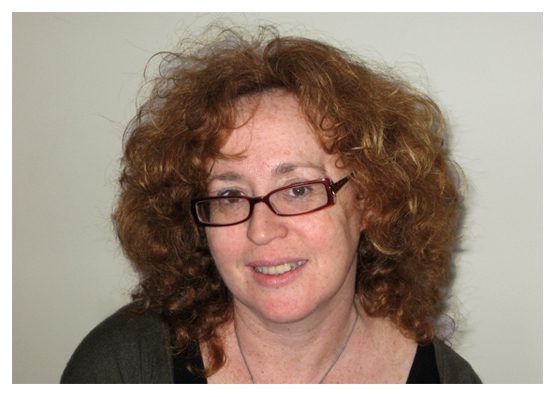
As usual, the Jewish Studies calendar is packed with a variety of engaging events this Spring, including film, music, lectures, and a reading by acclaimed author Nathan Englander.
Our semester’s events opened on February 6 with a talk by Dr. Amalia Sa’ar, Senior Lecturer in the Department of Sociology and Anthropology at the University of Haifa. Dr. Sa’ar gave a fascinating lecture, “Feminist Empowerment in a Neo-Liberal Age: A Case Study From Israel,” based on her own ethnographic fieldwork. The event was co-sponsored by the International Affairs Program, the Middle East Center, the Department of Sociology and Anthropology, and the Jewish Studies Program.
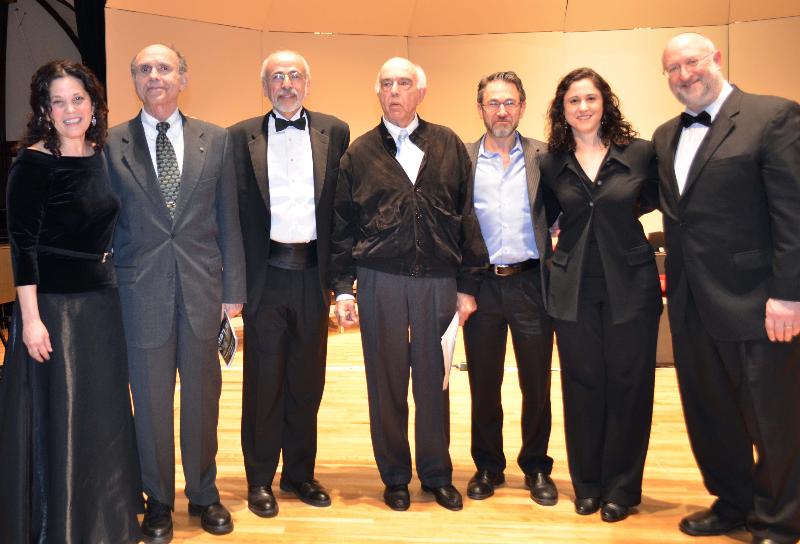
On March 10, Jewish Studies was pleased to co-sponsor “Fathers and Sons: Adler and Weiner,” a concert by the Zamir Chorale of Boston and Kol Arev of Hebrew College, presented as part of the Boston Jewish Music Festival. The program explored the way in which musical talent may run in families through a focus on two parallel family stories: Samuel Adler and his father, Cantor Hugo Chaim Adler, and Yehudi Wyner and his father Lazar Weiner. Hugo Adler (1894-1955) was an important cantor in Germany until he fled Nazi persecution in 1939 for a new life as a cantor, composer, and choir director in the United States. Lazar Weiner (1897-1982) sang in the Kiev opera chorus and studied piano and composition at the Kiev Conservatory until 1914, when his family fled anti-Semitic persecutions for the United States, where Weiner eventually became interested in Jewish musical expression. Adler and Weiner’s sons, Samuel Adler (b. 1928) and Yehudi Wyner (b. 1929), pursued musical careers in parallel trajectories, earning academic degrees in music, composing music for the synagogue, and being recognized among the greatest American composers of their generation. The highly successful concert featured the magnificent compositions of all four musicians and was well received by an appreciative audience, including some of Boston’s most respected musicians. Professor Josh Jacobson led a lively question and answer period with Samuel Adler and Yehudi Wyner, who reminisced about their early childhood exposure to music and the influence of their fathers and reflected critically on the state of synagogue music today.
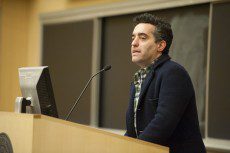
A powerful highlight of our semester so far has been a reading and conversation with award-winning writer Nathan Englander on March 18, the second Morton E. Ruderman Memorial Lectureship. Englander is the author of the recently published short story collection What We Talk About When We Talk About Anne Frank, as well as the bestselling collection For the Relief of Unbearable Urges (1999), the novel The Ministry of Special Cases (2007), and the play The Twenty-Seventh Man; he also translated the recent New American Haggadah (edited by Jonathan Safran Foer). In the afternoon, Englander met informally with a small group of students and faculty for an intimate discussion of the themes of his work and the artistic process more broadly. That evening, Englander spoke to a large audience of faculty, students, and community members. After reading from the title story of his new collection, he shared his compelling reflections on a wide variety of topics related to writing, identity, the Holocaust, politics, and personality. He observed that everything must be understood in multiple contexts as meanings are variable, and that everything that he says and writes is responsive to overlapping but particular concerns. Englander ranged widely in his remarks, explaining what moves him and how, as a writer, he wants to influence his readers – with whom he feels on intimate terms – to be more generous and humane. Entertaining questions from the audience, he discussed the writing process, his relationship with Holocaust survivors who are admiring readers, and about how differently his work is understood by audiences around the world. The recipient of a Guggenheim Fellowship, a PEN/Malamud Award, the Bard Fiction Prize, and the Sue Kaufman Prize from the American Academy of Arts & Letters, Englander was named one of the “20 Writers for the 21st Century” by The New Yorker. His writing has appeared in The O. Henry Prize Stories and many editions of The Best American Short Stories, as well as in The New Yorker, The New York Times, The Atlantic Monthly, and The Washington Post.
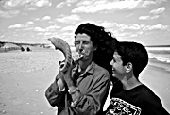
On March 20, Jewish Studies partnered with the Women’s, Gender, and Sexuality Studies Program to present a screening of “Treyf” as part of “Women Take the Reel: A Film Festival Celebrating Women’s History Month.” A documentary by and about two Jewish lesbians who met and fell in love at a Passover “seder,” “Treyf” explores the Jewish identity of the filmmakers and its impact on their lives. Lori Lefkovitz, Ruderman Professor and Director of Jewish Studies, and Suzanna Walters, Professor of Sociology and Director of the Women’s, Gender, and Sexuality Studies Program, led a lively discussion after the film.
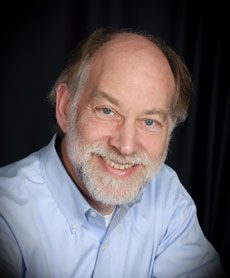
The semester ends in a whirlwind of events in early April. On April 3, Dr. Louis Newman, the John M. and Elizabeth W. Musser Professor of Religious Studies, Humphrey Doermann Professor of Liberal Learning and Director of the Perlman Center for Learning and Teaching at Carleton College and author of numerous books on Jewish ethics, spoke n a topic of interest to students and faculty from a broad range of disciplines: “Brave New World: Judaism and Genetic Technologies.” The following week, our semester’s programming will end with Northeastern’s annual Holocaust Awareness Week, featuring a special lecture by noted essayist, critic, and scholar Daniel Mendelsohn; see article in this issue for more information on these events.
